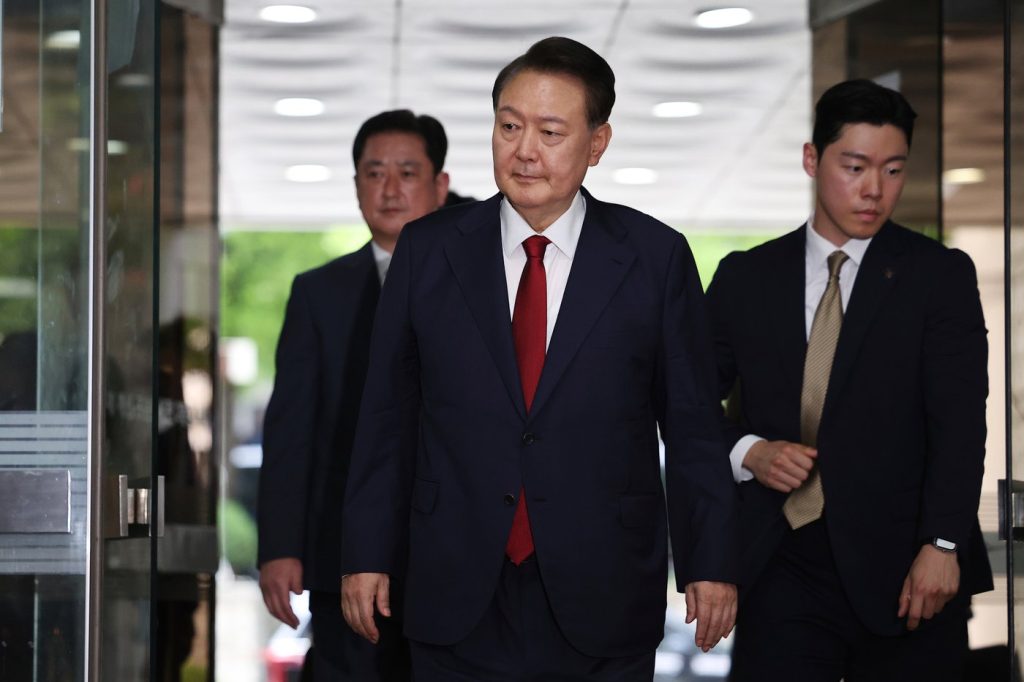SEOUL, South Korea (AP) - Yoon Suk Yeol, South Korea's ousted conservative president, was indicted on additional criminal charges linked to his controversial imposition of martial law, less than three months after being formally removed from office. This new indictment means that Yoon will spend up to six months in jail while awaiting a trial at the Seoul Central District Court concerning his martial law declaration on December 3, which resulted in significant political upheaval in South Korea.
Last week, Yoon was sent back to prison following the approval of his arrest warrant by the Seoul court, which was requested by a team of investigators led by independent counsel Cho Eun-suk. Yoon faces serious allegations, including abuse of power that obstructed the rights of several Cabinet members. According to Park Ji-young, a senior investigator on Cho’s team, Yoon only summoned select Cabinet members for the emergency martial law approval, violating the legal requirement that mandates all Cabinet members' endorsement.
Moreover, Yoon was charged with fabricating an official document to fulfill a formal requirement for the martial law declaration, only to destroy it afterward. The martial law declaration led to the deployment of troops and police officers to the National Assembly, which was under opposition control. However, enough lawmakers managed to enter the assembly chamber to vote down Yoon's decree, forcing his Cabinet to retract it. The political fallout culminated in Yoon's impeachment by the assembly, where even some lawmakers from his ruling party participated in suspending his presidential powers.
Yoon maintains that his martial law decree was a desperate effort to garner public support against what he referred to as the "wickedness" of the leading liberal opposition, the Democratic Party, which had been obstructing his agenda and contributed to the impeachment of key officials. In previous remarks, he labeled the National Assembly as a "den of criminals" and accused it of harboring "anti-state forces."
Earlier this year, in January, state prosecutors arrested and indicted Yoon on charges of rebellion, a serious offense that could result in the death penalty or life imprisonment if he is convicted. However, by March, a judge at the Seoul district court canceled Yoon’s arrest, allowing him to stand trial without being held in custody.
Following his impeachment, the Constitutional Court officially dismissed Yoon from his position as president in April, triggering a snap election to select his successor. New President Lee Jae Myung, a former leader of the Democratic Party, proceeded to approve legislation to launch independent investigations aimed at uncovering detailed information related to Yoon's martial law tactics, as well as ongoing criminal allegations involving his administration and his wife. Lee appointed Cho as the independent counsel to lead this investigation into Yoon's martial law declaration.
In May, state prosecutors expanded the charges against Yoon, accusing him of abusing his power further by compelling soldiers and police officers to attempt to seal the assembly and election offices, actions that fall outside their official duties. This continued scrutiny of Yoon’s actions continues to shake the political landscape in South Korea, as investigations into his presidency unveil serious allegations of misconduct and abuse of power.











